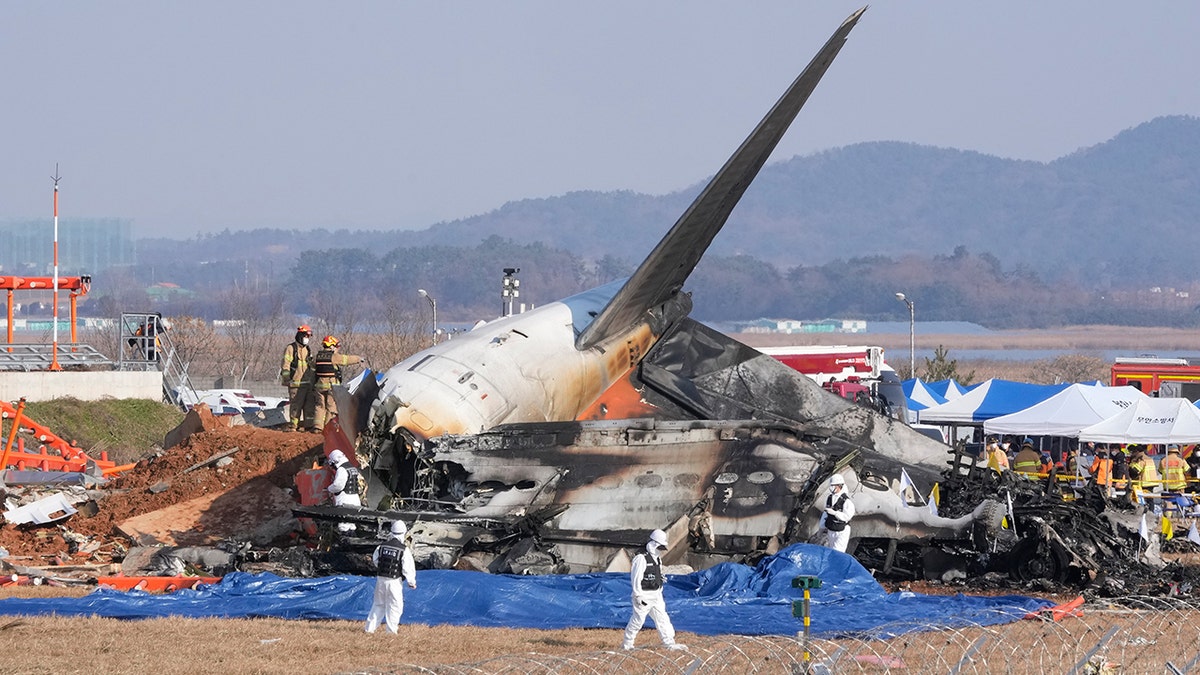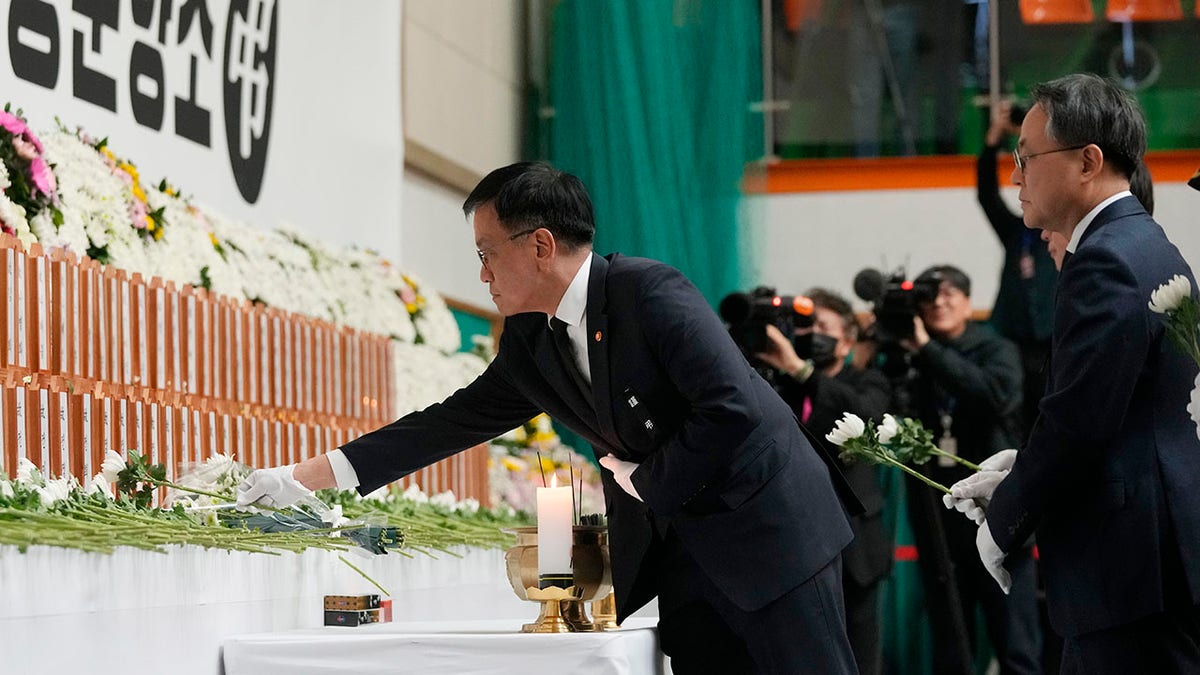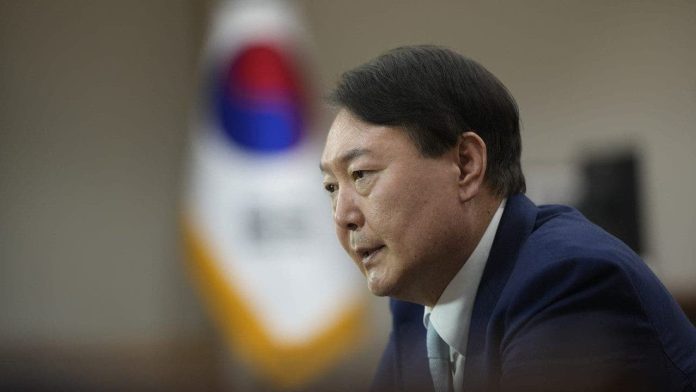Arrest warrants were approved by a South Korean court on Tuesday to detain impeached President Yoon Suk Yeol and search his office and residence as part of a criminal investigation into his martial law decree earlier this month.
This is the first time a sitting president of the country has faced arrest and comes after weeks of intense political turmoil in South Korea, Asia’s fourth-largest economy and a key U.S. ally. The country is also grappling with the tragic Jeju Air plane crash that claimed 179 lives on Sunday.
The Corruption Investigation Office for High-Ranking Officials, in coordination with police and military authorities, announced that warrants to detain Yoon and search the presidential office and residence in central Seoul were issued by the Seoul Western District Court.
A South Korean court approved arrest warrants on Tuesday to detain impeached President Yoon Suk Yeol. (AP Photo/Lee Jin-man)
AVIATION EXPERT CASTS DOUBT ON BIRD STRIKE THEORY IN DEADLY SOUTH KOREAN PLANE CRASH: ‘DOESN’T MAKE SENSE’
The agency has been probing whether Yoon’s Dec. 3 declaration constituted rebellion, leading to his suspension from office.
According to South Korean law, a leader involved in rebellion could face the death penalty or life imprisonment upon conviction.
The timeline for executing the warrants remains uncertain, with the president’s lawyer denouncing them as “invalid” and “illegal.” Yoon’s current whereabouts are unknown, and he is prohibited from leaving the country.
While Yoon has immunity from most criminal charges as president, this privilege does not cover allegations of rebellion or treason.
Only during wartime or similar crises can a South Korean president declare martial law, and even then, they do not have the authority to suspend parliament’s operations under martial law.
Yoon imposed martial law abruptly, aiming to eliminate “anti-state” elements after facing obstacles in passing his agenda in the opposition-controlled parliament. However, the martial law was in effect for only about six hours as the National Assembly voted to overturn the president’s decision.
SOUTH KOREA DEADLY PLANE CRASH: US SENDS INVESTIGATORS TO COUNTRY STILL REELING FROM DISASTER THAT KILLED 179

The country is also dealing with the deadly Jeju Air plane crash that killed 179 people on Sunday. (AP Photo/Ahn Young-joon)
Legislators then introduced a motion to impeach the president over his martial law declaration, with Han Dong-hun, the leader of the People Power Party, condemning the declaration as “unconstitutional.”
After proclaiming martial law, Yoon dispatched hundreds of troops and police to the parliament in an attempt to obstruct its vote on the decree before they retreated following the parliament’s rejection. While no major violence occurred, public demonstrations swelled both in opposition to and in support of Yoon.
The National Assembly passed the impeachment motion on Dec. 14, during which hundreds of troops and police were stationed at the assembly.
Prime Minister Han Duck-soo, who assumed the role of acting president after Yoon, was also impeached by parliament for failing to fill three vacancies on the nine-member constitutional court. Yoon can only be removed from office if the court upholds his impeachment.
Experts suggest that appointing more justices could enhance the chances of Yoon’s impeachment as it requires the support of at least six justices. The next hearing in Yoon’s Constitutional Court case is set for Friday.

South Korea’s acting President Choi Sang-mok places a flower for the victims on a plane which skidded off a runway and burst into flames, at a memorial altar at Muan sport park in Muan, South Korea, on Dec. 30, 2024. (AP Photo/Ahn Young-joon)
CLICK HERE TO GET THE FOX NEWS APP
Kim Yong-hyun, who resigned as Yoon’s defense minister after playing a major role in the martial law decree, has been detained and indicted on charges of insurrection and abuse of power.
New acting President Choi Sang-mok presided over a task force meeting investigating the Jeju Air disaster on Monday. The Boeing 737-800 aircraft landed without its front landing gear deployed, overshot the runway, collided with a concrete fence, and burst into flames.
The Associated Press and Reuters contributed to this report.




